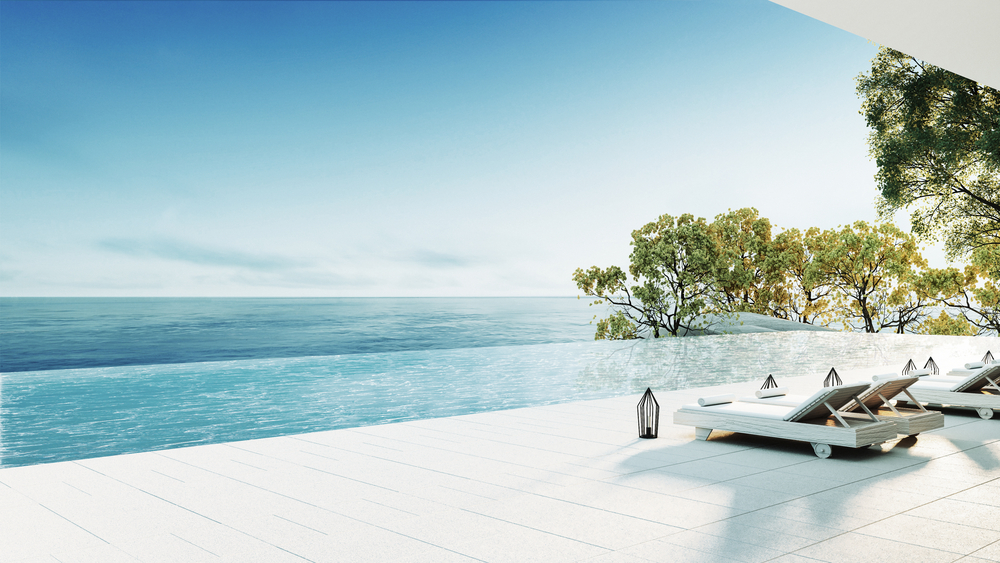
09
02 / 2020
Why living close to the sea is good for your health
Did you know that long ago, physicians recommended going to the beach for medical reasons? When consumption or tuberculosis was claiming lives by the thousands back in the 1900s, some doctors had a rather unconventional approach to treat it. So patients were sent to the seaside by the droves to breathe the salty sea air. It was believed to have curative powers, which could heal the respiratory organs and reduce the intensity of the disease. But the health benefits of the sea were known to man even before that. ‘Thalassotherapy’ or sea therapy was prescribed by Hippocrates, the father of modern medicine, himself.
Here are some health reasons why living near the sea is good for your health
Great for curing skin diseases
Going for a quick swim in the salty seawater can be great if you suffer from skin conditions like psoriasis. Sea water is a repository of minerals such as chloride, sodium, iodine, magnesium, sulphur and potassium, many of which have curative effects on the skin. Studies have shown that a combination of seawater and UVB radiation seems to have an ameliorative effect on skin problems such as psoriasis and atopic dermatitis.Old wives tales also prescribe sulphur and iodine rich sea water for its antiseptic properties, which can heal skin lesions.
Reduces respiratory inflammation
The sea air contains mist of saline water, which seems to have a soothing effect on the mucosal lining of the respiratory system. So, people suffering from inflammatory respiratory conditions like sinusitis can benefit from breathing the balmy sea air. Even aspiration of sea spray while swimming can be beneficial for the lungs.
Promotes good sleep and good mood
Have you wondered why you feel relaxed when you visit the beach? The sea air is laden with negative ions which can have mood-enhancing properties. A research concluded that negative air ionisation associated with the sea breeze resulted in lower depression scores.The negative ions also help by improving our oxygen intake and balancing levels of the feel good hormone serotonin. But if you are a thalassophile, the sight of the sea alone is good enough to cheer you up!
Higher levels of vitamin D
Did you know that vitamin D deficiency can cause horrible health problems like hypertension, diabetes, cardiovascular diseases,anaemia, brain damage, depression, infertility, and cancer? People living in dull and gloomy climes generally face more vitamin D deficiency than those who live close to the coast, according to a study conducted on 7,000 participants. A house by the seaside means you have more of the sunshine vitamin that can ward off some of the most dangerous modern-day diseases.
Good for your mind
Many people swear by the soothing sounds for nature to alleviate problems like sleeplessness, anxiety, and depression. It is proven that nature sounds, particularly that of birds, sea, forests, and rain, help in recovery from a psychologically stressful event. Visual impressions of nature combined with its soothing sounds help you heal your mind faster than you can say “beach”! So if it is mental peace you want, a stay by the beachside, listening to the sound of waves crashing on the shores can help.
Protects against cardiovascular problems
Deep sea water, or the water obtained from a depth of 200 meters into the sea. This mineral-rich water is known to have a lot of therapeutic benefits, especially for the heart. It helps the heart by decreasing the TC, TG, atherogenic index, and malondialdehyde (MDA) levels, while increasing the serum trolox equivalent antioxidant capacity. It also reduces the formation of plaque formation in the inner lining of the arteries.
Keeps you healthier than others
A good exercise regimen is important for overall health. But did you know that you can get more benefits out of your exercises if you were to do it close to the sea or any natural environment? Also, a study suggests that coastal proximity, or staying close to the sea, increased your chances of being fitter and healthier than the rest, thanks to the higher level of physical activity among coastal dwellers.